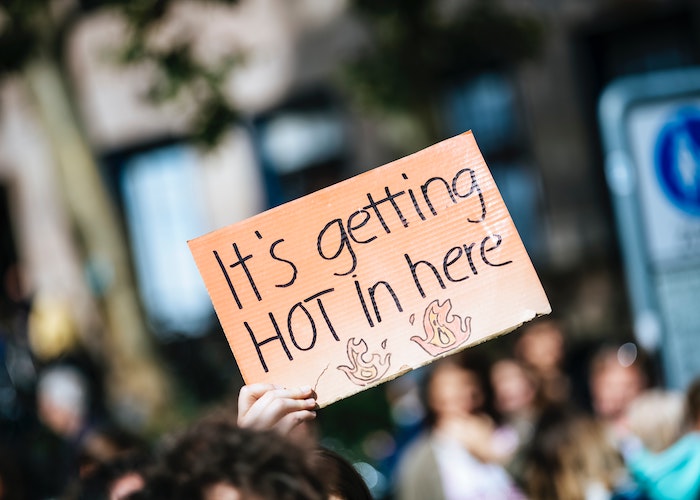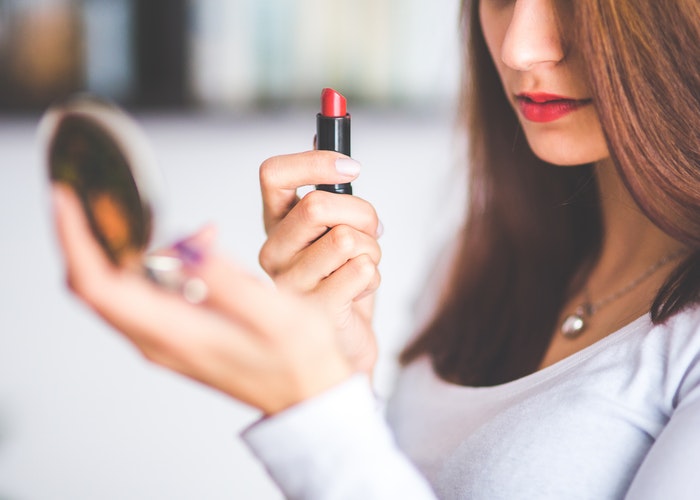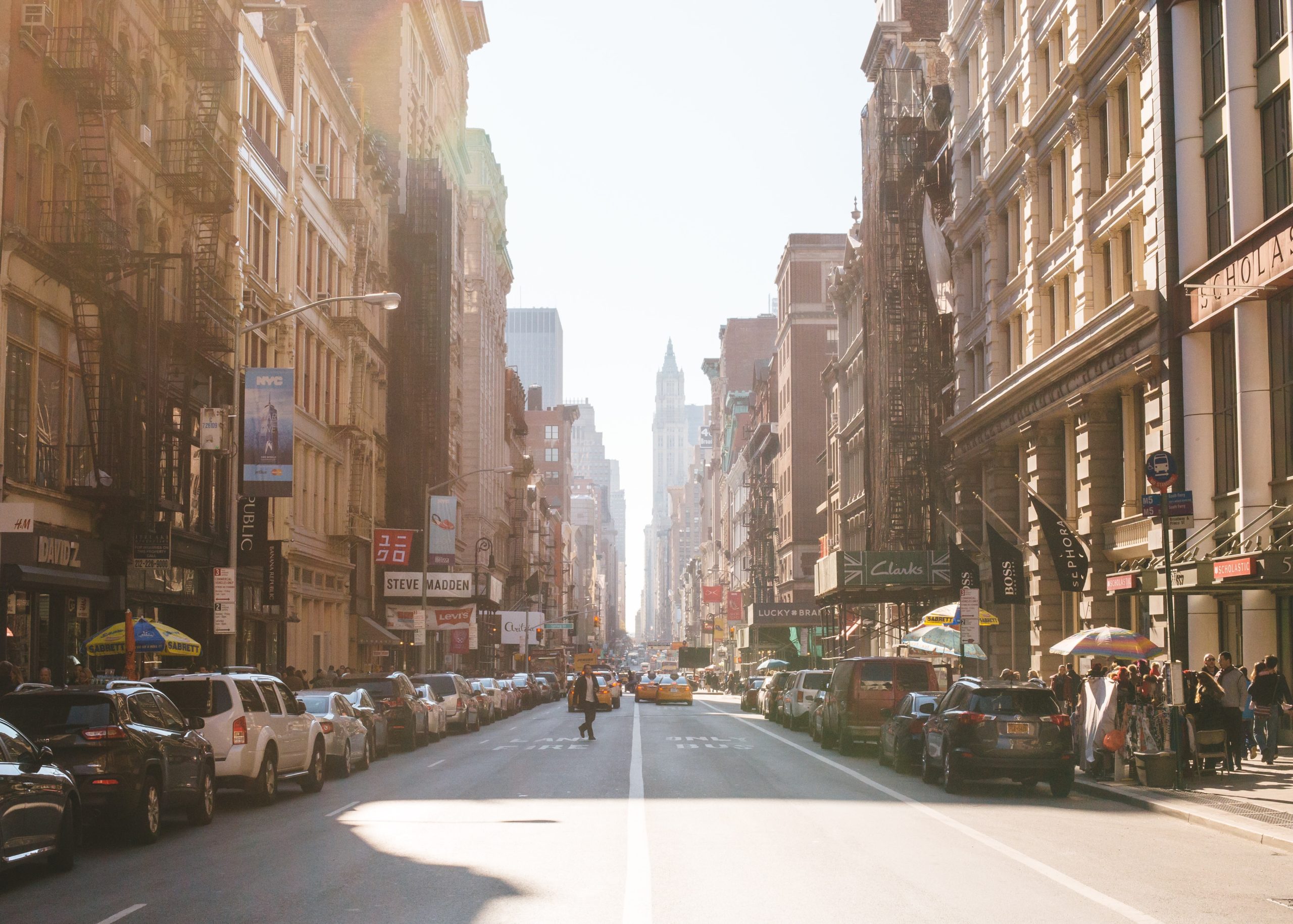The Election Process + 5 More Things Americans Should Be Much Angrier About

“Why does it seem like elections go on forever in the U.S.?
Because they do.”
Recently, Chelsea took to the TFD channel to address some of the most concerning issues impacting the nation, while also pointing out a few things we can do to resolve them. From disparities in our healthcare system and wealth inequality to the current pandemic and the ongoing issue with our nation’s homelessness crisis, here are six things Americans should be way more upset about.
1. The Election Process
One of the most pressing issues to be righteously angry about — our nation’s election process. As Chelsea pointed out, while there are perks to our extended election process, compared to other countries, the flaws outweigh them all (plus, for a first-world country, our process is pretty dated — seriously.)
“Why does it seem like elections go on forever in the U.S.? Because they do.”
Chelsea continued, “In the U.S., candidates declare their intent to run more than 500 days before an election — more than a year — where compared to other countries, the campaigning period usually lasts no more than 150 days. Some countries, like Japan, keep their election campaigns strictly limited to only 12 days by law, while France’s presidential campaign period is typically only two weeks long and Argentina doesn’t allow campaign ads to start airing until 60 days before an election.
“There can be some benefits to running a longer election, with some studies showing that these long campaign cycles do tend to give Americans a better understanding of the issues. It also means that it costs millions of dollars to effectively run a campaign, because you have to be able to sustain things like advertising, grassroots organization and labor, a campaign staff, travel, etc., for an extremely long time. Which in turn means that politicians on average spend more time securing funding than actually campaigning and they spend a hell of a lot of time campaigning.
“And this is all before even touching the electoral college system. The way the U.S. elects a president is not via direct democracy. A candidate can win the popular vote and still lose the election because the electoral college weights states differently based on population. And for most states, it’s an ‘all or nothing’ system, meaning a candidate who wins a state even by a single vote, will get all of that state’s elector votes. Considering some states have almost 10 times the votes of others, this results in ‘winning’ certain states having more value than others.
“Popular consensus among constitutional experts is that this system was actually established to appease slaveholding states. So this system is literally based in slavery and oppression. Not a good look, electoral college. You’re canceled!”
2. Healthcare
The first item on the list to give yourself “permission to be pissed” about: our lacking health care system.
“So here’s a sad stat. According to the United Nations World Health Organization, the U.S. ranks 37th globally in overall healthcare performance, but ranks first in the world for health care expenditure per capita. For comparison, France is first in the world in terms of healthcare performance and fourth in the world in terms of spending per capita.
“In a paper published in the American Journal of Public Health, researchers found that over two-thirds of all bankruptcies [in the U.S.] were due to expenses incurred due to medical emergencies, even after the implementation of the Affordable Care Act,” Chelsea revealed.
After disclosing some additional stats, she goes on to point out the inflated cost of hospital admissions and common medications, as well as America’s flawed perspective of viewing healthcare as a “luxury.”
“Despite having shorter hospital stays on average, the United States cost for a hospital stay greatly exceeds that of any other country. Yet, according to the Peterson Center on Healthcare Kaiser Family Foundation, these inflated costs do not translate to better results. As previously stated, the U.S. is actually ‘middle of the road’ when it comes to healthcare outcomes and is actively falling behind on a lot of important indicators, such as life expectancy, infant mortality rate, and diabetes care. For example, insulin is actually 10 times more expensive here than it is in other comparable countries. Americans on average pay about $10,000 a year for healthcare costs, including things like insurance premiums and medication.
“We have grown accustomed in the United States to thinking of healthcare as a luxury or a commodity, like a pair of shoes or a bottle of beer. But when we talk about healthcare, we talk about human life, the value of a human life, and the value of a healthy population as a society.”
3. Our Response To Covid-19
“Based on how the United States treats its citizens’ health in general, it really shouldn’t be that surprising that, as a nation, our response to COVID was lackluster. But it should still shock us, because it was really shockingly bad – and still is,” Chelsea kicked off for point number two.
“One reason why the U.S. has faired so poorly in its COVID response, when compared to other high-income countries, is because of our lack of universal health care, as mentioned before. Providing affordable, accessible testing to all Americans has been a huge stumbling block for our COVID response, and a cornerstone of many successful countries management of the outbreak. Other countries, including Taiwan, had an established plan for containing a pandemic ready to implement, which included rapid response, tracking known cases, enforcing quarantine and free-to-all COVID tests.
“However, it is worth noting that universal healthcare is not all it takes for an adequate to good pandemic response. Though the United Kingdom has government-funded UHC, due to prime minister Boris Johnson’s delayed response and unwillingness to enforce mass closures sooner, [the UK] has also seen a huge number of COVID cases, including 80,000 by mid-April with 10,000 deaths.
“But what is perhaps most infuriating about this, as reported by Politico, is that the Obama administration created a comprehensive pandemic response plan that the Trump administration did have access to, meaning our response could have been much more coordinated and effective from the beginning. The plan was established in the wake of the Ebola outbreak of 2014 to 2015. In addition to not using that pandemic response plan, this administration also took the step of actively downplaying the pandemic in the early months, losing precious time to gather a proper response.”
4. Wealth Inequality
While the first couple of points were health-related, it’s pertinent to point out the crisis on wealth distribution and economic classism. As Chelsea points out, while this is an issue in the U.S., it’s also a worldwide issue, overall.
“It is no secret to pretty much anyone at this point that wealth inequality is a massive problem in the U.S. Three men – Warren Buffet, Bill Gates, and Jeff Bezos to be exact – hold more wealth than the entire bottom 50% of Americans. And this is a global issue, not just an American one. Globally, the richest 1% hold 44% of the world’s wealth. Meanwhile, 56.6% of the world’s population hold only 2% of total wealth, according to the Credit Suisse Global Wealth Report.”
She continued, “While this is a global problem, the United States is egregiously bad in this regard. In the U.S., the richest 1% hold 40% of the total wealth, which is a full 12 percentage points higher than the next country in line – the Netherlands. In fact, in no other nation in the world, does the top 1% hold more than 28% of total wealth, and trends show that the rich are only getting richer, while middle and lower class incomes are remaining stagnant.
“Two of the factors that are most contributing to this issue is that wealth easily generates more wealth, which is why we (at TFD) encourage you, if at all possible, to start doing things like investing If you think about the average multimillionaire or billionaire, who has the majority of their assets and various investments in the market, etc., that money is constantly passively generating more wealth for them – while they don’t even have to do anything.”
5. Homelessness
“One thing that’s very important to understand is that in the U S homelessness is not about a lack of homes; it’s a lack of affordable homes.”
“In fact, nearly 1.5 million homes [in the country] were empty at the end of 2018, and empty homes – just sitting there – is actually a huge burden on communities.”
Chelsea then went on to explain how the underuse of vacant properties is not only an unfortunate misuse of potential housing, but also impacts the economy for all.
“Vacancies drive down property values and can impose big costs on the local government in terms of things like maintenance or even demolition. These higher vacancy areas are usually a result of a high number of foreclosures, which is often the result of a greater housing crisis.
“In cities such as New York, a different issue plays out. While there are 80,000 people sleeping in shelters or on the streets in the city, the construction focus for new apartments and homes has been on high-end luxury housing, [while] unaffordable units mostly sit empty with more than half of them being flat out unsold. And this isn’t unique to NYC; San Francisco and Los Angeles are also facing a housing crisis.
“One of the main catalysts to homelessness in America – if not the main one – is the loss of a job. Because most low-income Americans do not have emergency savings, they’re living paycheck to paycheck, meaning missing even one paycheck could result in an inability to make rent and therefore potential homelessness. It is important to remember that when it comes to homelessness, it is an active choice made by society. We can choose not to have it, or we can choose to have it, and then constantly be dealing with the symptoms – up to us.”
6. Lobbyists & Special Interest Groups
“Lobbyists and special interest groups are people and organizations that are laser focused on specific issues such as gun rights, the political power and rights of tech companies, regulations placed on power plants, and so on. They’re often funded by corporations who have a vested interest in these topics and pay top dollar to people who will argue their preferred outcome with politicians. To be abundantly clear, lobbying is perfectly legal; it’s legality comes from the first amendment to the constitution, which promises the right to lobby.”
She continued, “In its idealized form, it allows for interest to be heard and aids in helping prioritize issues, but it isn’t idealized. Because corporate interests have a lot of money, they naturally have a much bigger influence on the political process than individuals or even grassroots organizations, which often represent a more accurate picture of the public interest.
“In 2019, $3.47 billion were spent on lobbying. In its real form, lobbying is more of a ‘pay to play’ situation, where the more money a cause has, the more effective it is. Ultimately, when it comes to our political process, although there is a huge part to be played by the individual, the power of a single massively profitable corporation – let alone an entire industry – can exercise a level of influence that the individual, or even grassroots groups, could never match. Without reform to this specific issue, it’s going to be unlikely that we’ll make progress that, in any way, inhibits corporate moneymaking.”
Check out the entire video above, or click here to watch it on our channel!
Image via Pexels
Like this story? Follow The Financial Diet on Facebook, Instagram, and Twitter for daily tips and inspiration, and sign up for our email newsletter here.





